Sessions / Main Stage
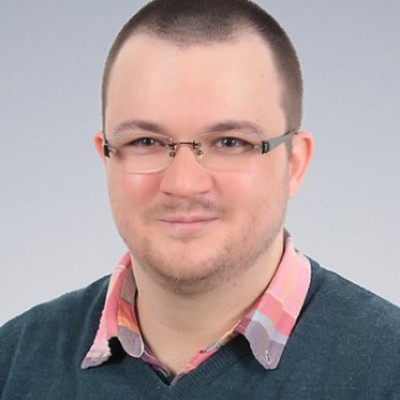
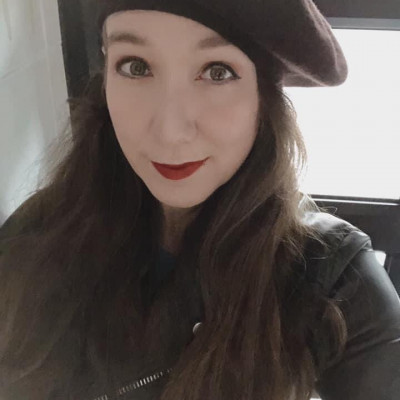
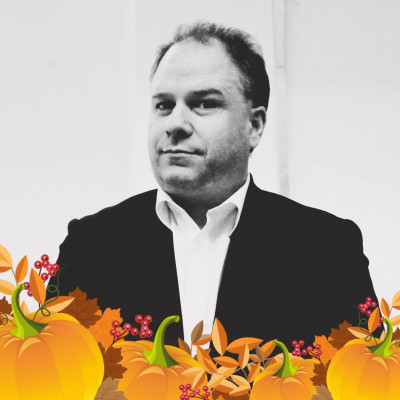
Opening Ceremony #1169
We begin KOTESOL 2021 with some of the traditional pomp and circumstance, but also with a few twists.
Your hosts will be Bryan Hale (President) and Rhea Metituk (1st Vice-President). They will welcome everyone, including our special guests. Maybe they'll do something else, as well. International Conference Chair Michael Free will muse and amuse (he hopes) with a preamble to the main event, entitled "Love and Messes" We'll also be asking how you are feeling.
The Zoom room will open at 6:00, and we'll also be welcoming people on our Discord server as well!

The Next 10 Years in Technology and Society — and What It All Means for ELT #1057
Futurist, humanist, and author Gerd Leonhard takes us through the possibilities and probabilities of the next decade. Based on decades of experience as a virtual keynote speaker and consultant with an impressive client list, he brings his considerable expertise to bear in this dynamic presentation. He asks, with reference to both technology and society, what are the things we can look forward to in the next 10 years? What opportunities lie ahead in our next decade? What are the challenges we face as human beings? And last but not least, what are the questions we in the profession of ELT should be asking during the course of this conference — and beyond — if we are to create together a positive, enduring future?
* This keynote will be prerecorded and will be made available to conference attendees by the following morning. We would ask that you do *not* share it publicly, but you are more than welcome to record it for your own personal purposes. ** The keynote will be followed by our opening night panel plus a moderated "Q and A" session. *** If you have a question for Gerd Leonhard, please feel free to submit it on our Discord server, or you can wait for his appearance at our Conference Retrospective on Sunday, February 28, at 7:30 p.m.
*** View the video of Gerd Leonhard's keynote presentation here: https://kotesol2021.eventzil.la/session/1174 ***
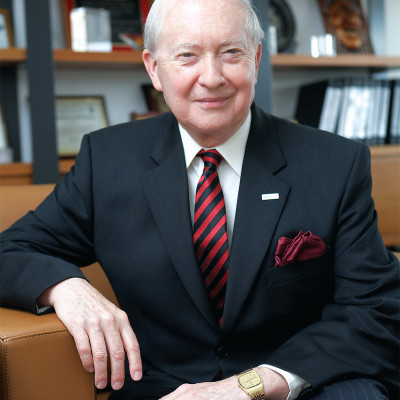
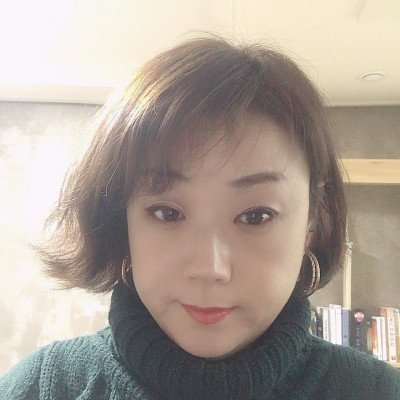
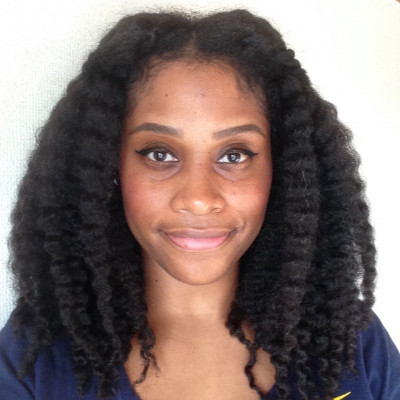
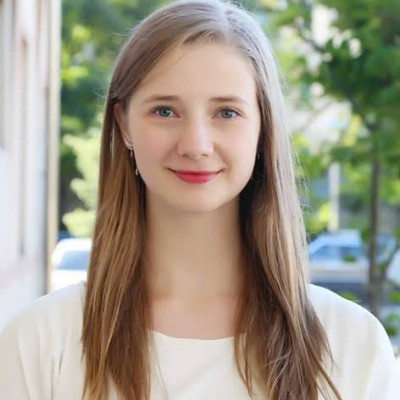
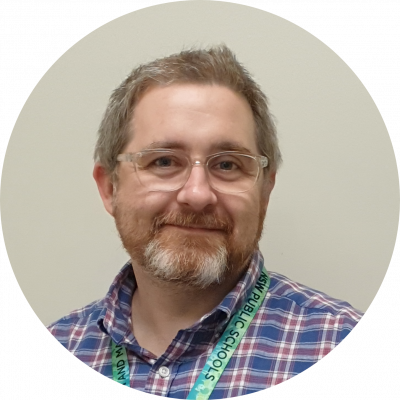
Opening Night Panel + Q and A Session #1170
After Gerd Leonhard has told us a bit about our futures as humans in this rapidly changing world, we need to begin to think about this in terms of ELT. Our opening night panel lets attendees hear the voices of 5 different professionals, from an early-career teacher to one of the most experienced educators in Korea. Each will briefly describe their thoughts and feelings about what may / might / will happen in ELT, in order to prime attendees to reflect on their own future(s) in the days ahead.
Our panelists are:
John Endicott: President, Woosung University
Judy Yin: Associate Professor, Korea National University of Education
Lisa M. Hunsberger: Lecturer, Kyushu Sangyo University; Presentation Design Specialist
Sydney Fortowsky: Korean Government Scholar, Korea University; Early-Career English Language Teacher
Stafford Lumsden: Researcher, Macquarie University; Online Teaching and Learning Specialist
Come listen, and be inspired!
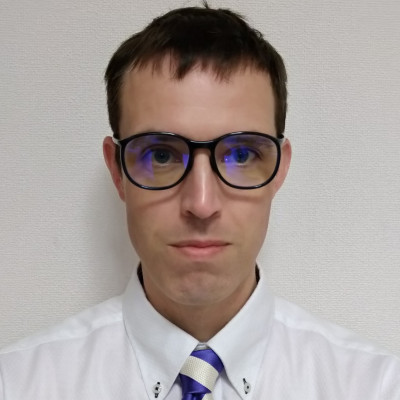
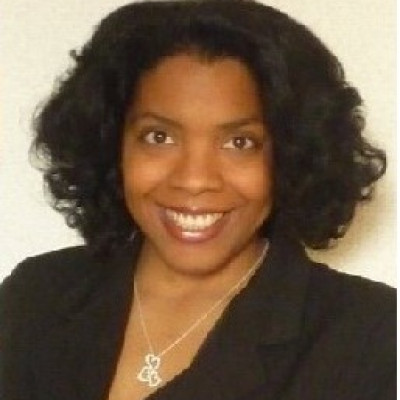
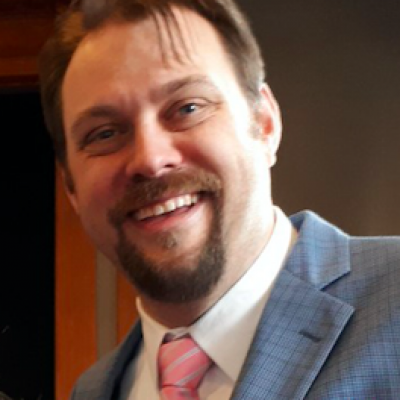

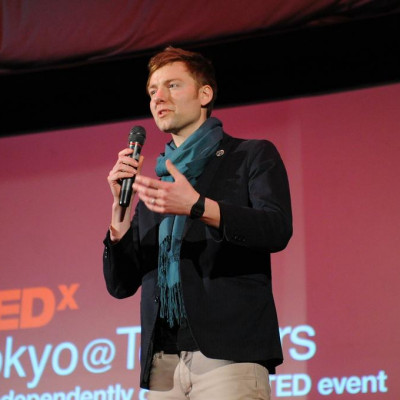
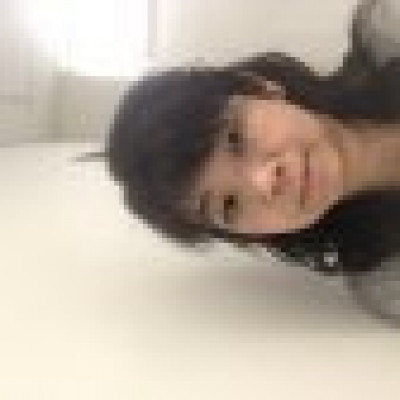
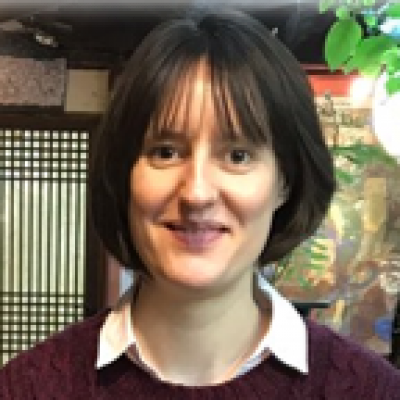
Pecha Kucha Extravaganza #1092
Synchronous Pecha Kucha: * Marc Jones, "Making Your Classes ADHD-Aware: Simple Tips for Inclusion" * James Papple, "TESOL Affiliate Network and Professional Council Overview" * Kinsella Valies, "You Talking to Me? English-Speaking Practice Through Movies" * Jason Wolfe & Jonathan Adreano, "UnGoogleability and Radical Creativity"
Asynchronous Pecha Kucha: * Daniela Trinks, "Teaching the Board Game Go to English Learners" * Takano Yoko, "Online Project-Based Teaching’s Benefits to Young Learners and Their Families"
*** Note: Each pecha kucha is just under 7 minutes long (20 slides at 20 seconds per slide). ***

Making Your Classes ADHD-Aware: Simple Tips for Inclusion #1125
The number of people with ADHD is estimated to be approximately 7% of the population, and many may actually be high achievers. As someone living with ADHD, teaching and learning languages, I have a useful perspective. In this pecha kucha, I will give an overview of problems that learners with ADHD face in their language learning (such as working memory, executive function) and how to make classrooms (virtual and physical) more inclusive for learners with ADHD (not simply breaks). The added bonus is it makes it better for everyone else. After the pecha kucha, I would like the opportunity for a Q&A.
** Part of the Pecha Kucha Extravaganza; each pecha kucha is just under 7 minutes long (20 slides at 20 seconds per slide).

You Talking to Me? English-Speaking Practice Through Movies #1126
Independent and incidental acquisition of vocabulary through film is a life-long learning skill. This research project examines a two-day, face-to-face, film-based speaking course. It investigates how the use of intentional vocabulary-learning activities and production through contextual cues were effective in converting passive mastery into active production. The qualitative approach consists of recorded conversations, instructor observations, and pre- and post-course surveys. The participants were mixed-level businesspeople and public servants who used English at work. Observations and recordings highlighted a greater understanding and active application of the vocabulary introduced. Surveys showed that student confidence in their ability to express themselves in general conversation decreased by 16.4% from "I can do it (easily)" to "I need more practice," while confidence in work-related English use decreased by 17.3%. It can be concluded that pre-course level-assessment, confidence-building, and maximizing output time can improve active use of language acquired through film.
** Part of the Pecha Kucha Extravaganza; each pecha kucha is just under 7 minutes long (20 slides at 20 seconds per slide).

TESOL Affiliate Network and Professional Council Overview #1130
This pecha kucha will explore the work of TESOL's Affiliate Network and Professional Council (ANPC) and its role with global affiliates. Present and future affiliate leaders will learn about the support the ANPC can offer.
** Part of the Pecha Kucha Extravaganza; each pecha kucha is just under 7 minutes long (20 slides at 20 seconds per slide).
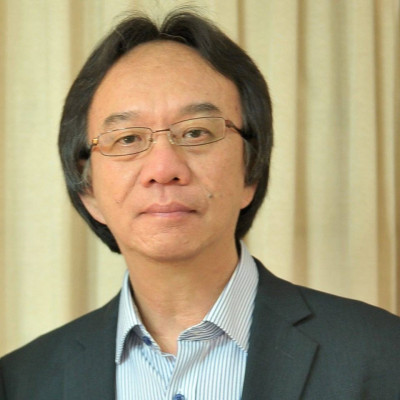
Addressing the Reading-Writing Gap in Second Language Learning #1077
Research shows that reading and writing are closely connected. Students who can read well can be expected to write well. However, repeated observations show that this is not always the case. Students who have developed an advanced reading ability often continue to experience difficulty when they try to express themselves in writing.
In my talk, I first discuss oft-cited sources of students’ writing difficulties, which typically involve difficulties at the linguistic (e.g., grammar and vocabulary) and cognitive levels (e.g., text coherence). I will then explore the relationship between reading and writing in detail, highlighting areas that need to be linked more closely together.
In the last section, I will present an instructional model that can promote more efficient processing of language by the students. The model encourages student writers to engage in writerly reading and readerly writing to further strengthen their writing proficiency. This talk will be of interest to teachers who wish to better understand the link between reading and writing and how they can help students become better writers.
Dr. Willy A Renandya is a language teacher educator with extensive teaching experience in Asia. He currently teaches applied linguistics courses at the National Institute of Education, Nanyang Technological University, Singapore. He is a frequent speaker at international ELT conferences and has published extensively in the area of second language education. His publications include Language Teaching Methodology: An anthology of current practice (CUP 2002, with Jack C Richards) and Student-centred cooperative learning (Springer 2019, With George Jacobs).
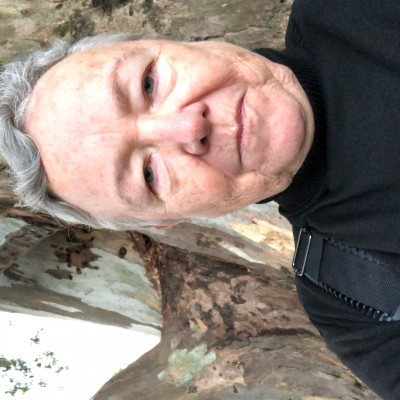

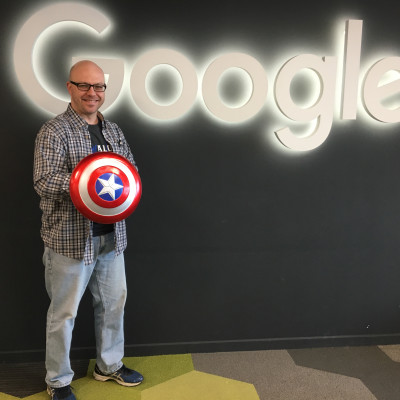
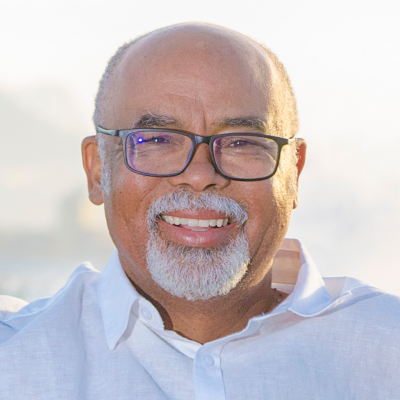
Green ELT: Imperatives and Conversations #1038
The future of all things depends on actions taken today, and nowhere is this more evident than in the ecological sphere. Despite almost five decades of environmental education programs, very little change is evident in how humans and nature interact. This panel discussion will present views from philosophy, education and social perspectives, with specific emphasis on how to integrate the vocabulary for discussion of ecological issues. Unless those who talk about problems and solutions understand each other, there is little progress.
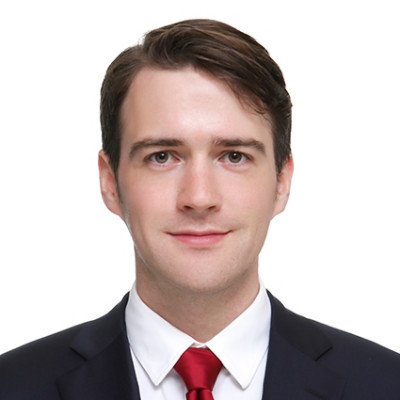
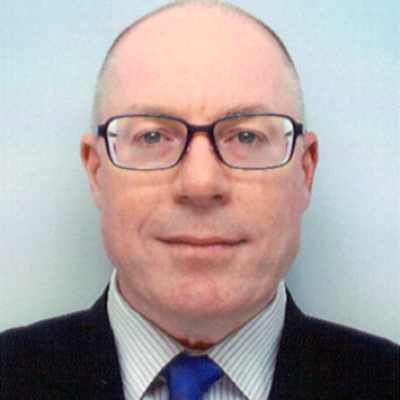
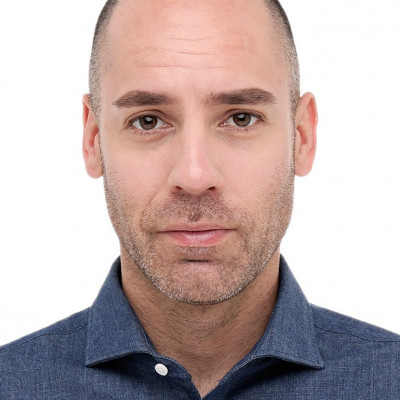
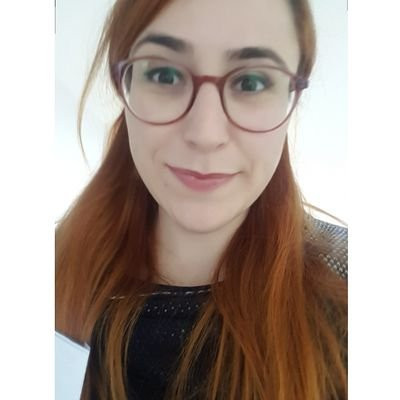

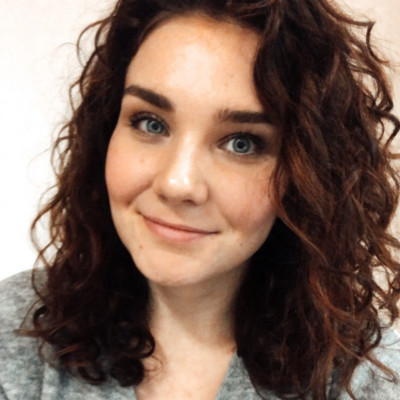
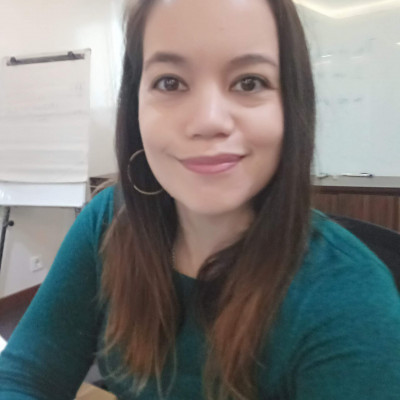
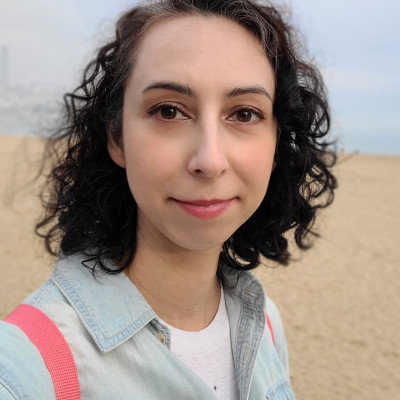
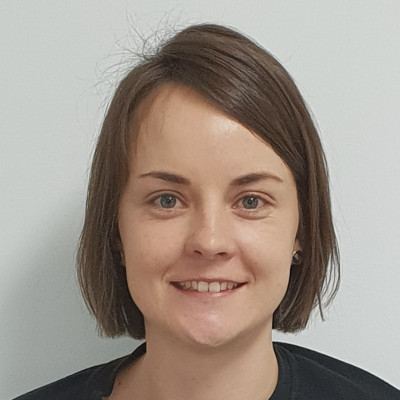
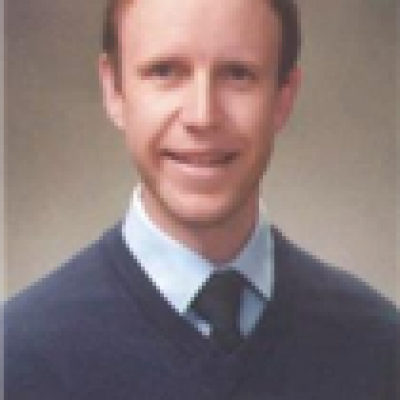
Graduate Student Showcase Presentations #1060
This session will feature presentations by our cohort of graduate students:
Matt French, "Mental Lexicons and Word Association: A Small-Scale Study" (sync) Nur Fitri Gebers, "Example of a Communicative Lesson for a Mixed-Ability Online English Literature Class" (sync) Gizem Genç & Antonina Nemtinova, "Identities of Turkish High School Students and Their Effects on Learners’ Perceptions of Lesson Theme" (sync) Ehean Kim, "Scratch Coding Workshop Through Design-Based Research" (sync) Kirsten Razzaq, "From SOS to Success: The Distance Learners’ Dissertation Toolkit" (sync) Charlotte Otto, "The Role That English Plays in the World Today" (async) Helmut Otto, "Language Planning: An Example from Africa" (async) Robin Maurice, "A Framework for Adapting and Exploiting Authentic Materials with Young English Learners" (async)


Identities of Turkish High School Students and Their Effects on Learners’ Perceptions of Lesson Themes #1162
The aim of the present study is to understand how Turkish learners’ identities affect their perceptions of the target-language community culture and home-country culture themes, namely a Christmas-themed lesson, being a taboo in Turkish education, and a New Year-themed lesson, belonging to the home-country culture as well as being international. Three different methods of data collection used in order to triangulate the data: a demographic information form, questionnaires, interviews, and field notes from the teacher conducting the study. There is a dearth of research in terms of Turkish students’ identities and their effects on learners’ perceptions of topics, materials, and discourse used in the EFL classroom; therefore, this study aims to fill a gap in the literature. The results of this small-scale study suggest that students showed preference in favor of the local culture-based lesson, as they had the opportunity to share their real cultural experiences.
*** Part of the Graduate Student Showcase; this presentation, itself, is ~25 minutes long. ***

Scratch Coding Workshop Through Design-Based Research #1163
This presentation aims to introduce the features of design-based research and an example design-based research project that was designed by the presenter. The example research project is about digital storytelling activities through Scratch to teach students both computational skills and a foreign language. The rationale for the Scratch coding workshop research project and research designs will be presented with literature reviews. Participants will come away with ideas of how to create design-based research while exploring the example project in the presentation.
*** Part of the Graduate Student Showcase; this presentation, itself, is ~25 minutes long. ***

From SOS to Success: The Distance Learners’ Dissertation Toolkit #1165
Distance learning has the advantage of location independence when pursuing higher education qualifications while working abroad in EFL contexts. One of the disadvantages when entering the dissertation stage is that institutional support can fall short of what on-campus learners have access to, due to the distances involved and logistics of synchronous communication. The limited contact with tutors and supervisors can feel impersonal, and connections with peers can be minimal or non-existent. The resulting lack of an in-person support network may feel isolating, with no one to bounce ideas off or talk through problems and questions when they arise. This presentation will discuss the challenges experienced while completing the dissertation for an MA TESOL as a distance learner and share the online and offline resources that made all the difference.
*** Part of the Graduate Student Showcase; this presentation, itself, is ~25 minutes long. ***

Mental Lexicons and Word Association: A Small-Scale Study #1166
The question of how words are organized in language learners’ minds has become increasingly relevant as acknowledgement of the importance of vocabulary has increased. The concept of the mental lexicon attempts to model the connections between those words and to provide a map for how learners organize those associations. This presentation will look at common word relationships that comprise the mental lexicon using a small-scale word association task (WAT) as a method of graphing these connections in Japanese non-native speakers (NNSs) of English and native speakers. Also of interest to other graduate students, I will be discussing the process of preparing, conducting, coding and analyzing the WAT results and some pitfalls I hope to help you avoid, should you wish to run your own small-scale WAT.
*** Part of the Graduate Student Showcase; this presentation, itself, is ~25 minutes long. ***

Korean Film: Hanyeo / The Housemaid (1960) #1175
Join conference chair Michael Free as we offer a chance to view some classic Korean films. These are all available free of charge via the Korean Film Archive's YouTube channel. After some brief introductory remarks, you can sit back and relax after a hard day of conferencing and watch a Korean classic. Though not R-rated, this film is not suitable for children.
Hanyeo, or The Housemaid, is a melodrama (sometimes classified as a thriller, or even horror) movie from 1960.
Synopsis: "After his pregnant wife gets tired working at home, Dong-sik Kim hires a housemaid to help his wife with the household chores. However, the housemaid turns out to be more than they bargained for."
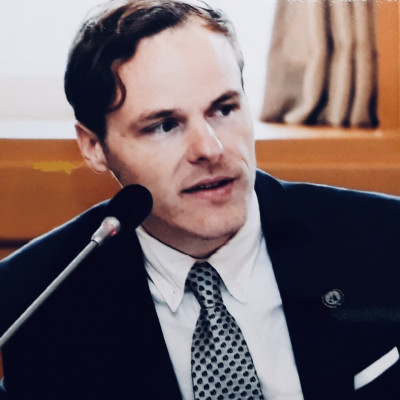

EMI in Conflict-Affected Contexts: Critiques and Emerging Possibilities #1035
There are few studies examining the role of English in universities in conflict-affected contexts. Yet, English as a Medium of Instruction (EMI) is a common policy implemented by newer universities emerging in conflict zones. Drawing on data collected through interviews with university educators working in two conflict-affected contexts, Afghanistan and Somaliland, this study explores: Why do university policymakers adopt EMI policies in conflict-affected contexts? What are the limits and possibilities of EMI in conflict zones? How might EMI curriculum and pedagogy serve to ameliorate or exacerbate conflict? Data was analyzed through the lens of border cosmopolitanism. The paper will focus on sharing some initial findings from the study, and how current higher education EMI research could learn from the policies and practices of academics working in conflict-affected contexts.

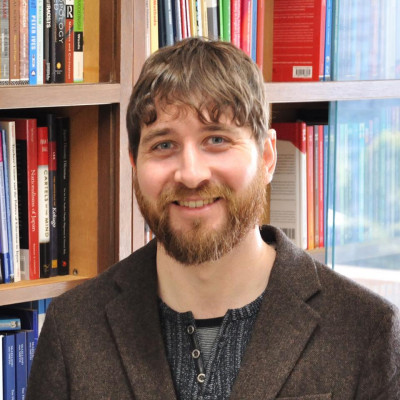

The Problem of Native-Speakerism: Why Haven't We Resolved This? #1040
The "Conference Chair's Panel" is an initiative of this year's conference that we hope will become a tradition. It will take an issue of particular importance or interest to the Conference Chair, and gather some experts to discuss it. This year, the topic is Native-Speakerism.
Why Native-Speakerism? Because it's important? Yes. Because it's a complex issue? Yes, that too. It's not because it hasn't been discussed, and neither is it because ELT professionals don't realise native-speakerism is a problem. It's because we — with the 'we' being ELT professionals —haven't resolved this issue to most people's satisfaction. Fortunately, all four members of this panel are all well-equipped to talk about the issue, with each bringing a different perspective. The question that serves as our point of departure will open up into a dialogue that will hopefully offer some fresh insights and take us further down the road to resolving this important problem.
Panel Members: Marek Kiczkowiak Robert Lowe Hyun-jung Shin Varinder Unlu Angie White
Moderator: Michael Free








Graduate Student Showcase Roundtable #1145
A roundtable discussion of issues and importance to current graduate students.
Participants:
Ehean Kim Matt French Fitri Gebers Gizem Genç Antonina Nemtinova Robin Maurice Charlotte Otto Otto Helmut Kirsten Razzaq Michael Berichon
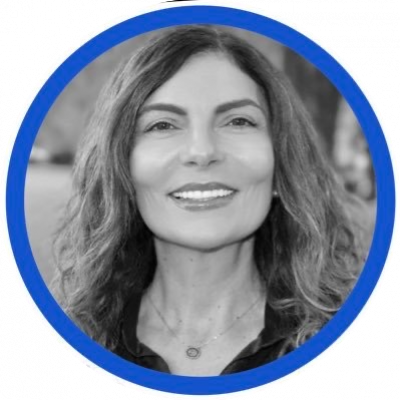
Re-envisioning ELT Through the Lens of Digital Literacies #1079
New technologies have become pervasive in the way people live, learn and communicate, challenging our values and norms in language education and literacy. With the pandemic exposing existing digital gaps and divisions, there is now both the urgency and the momentum among language educators to embrace new technologies. However, is technology alone really the answer?
This plenary will re-envision English Language Teaching through the lens of digital literacies. It will argue that as communication is becoming increasingly multimodal, language students need new literacies to read, listen, view, comprehend, and critique complex information online. Language education cannot ignore the extensive changes to literacy that take place in this multimodal world and assume a key role in helping students to navigate it. This will lead to a final discussion in which we will attempt to draw some practical conclusions about the way forward.
Sophia Mavridi is a Digital Learning Specialist & Lecturer in English Language Learning at De Montfort University (UK). Her research focuses on online learning and the increasingly important role of digital literacies in language education. As a consultant, Sophia supports institutions and teachers to integrate technology in a pedagogically sound way and has trained for major organisations around the world. She is a regular keynote speaker at international conferences and the joint-coordinator of the IATEFL Learning Technologies Special Interest Group. Her latest publications are 'English for 21st Century Skills' (Express Publishing, 2020) and 'Digital Innovations and Research in Language Learning' (IATEFL, 2020), both of which reflect her keen interest in innovative pedagogies in language education.

Korea Film: Sopyonje #1177
Join conference chair Michael Free as we offer a chance to view some classic Korean films. These are all available free of charge via the Korean Film Archive's YouTube channel. After some brief introductory remarks, you can sit back and relax after a hard day of conferencing and watch a Korean classic.
Sopyonje is a 1993 musical drama. It was directed by Im Kwon-taek, and tells us of a family of traditional musicians trying to make a living.
You can read about the importance of this film here: http://blog.lareviewofbooks.org/the-korea-blog/seopyeonje-surprise-art-house-megahit-showed-korea-forgotten-culture/

Tech Clinic with Joe Dale (Monday) #1134
We are delighted to announce that Joe Dale, an edtech specialist based in the UK, will be leading a number of tech clinics during KOTESOL 2021!
Joe’s sessions will be focused around any edtech questions and issues you are having, both in general and specifically during the pandemic. If you are interested in attending one of Joe’s clinics, we invite you to send in your questions and he will suggest some practical solutions that should help to improve your practice. His considerable experience in this area (see his bio below) means that he will be able to provide quality, substantive advice — and if he doesn't know the answer straight away, he'll find it!
These sessions will last for 90 minutes, and will be custom-tailored to each group. They will also be small sessions, with attendance capped at 20. For sessions to run there needs to be a minimum of 10 participants. You may sign up for a maximum of 2 sessions.
Session Timetable (subject to minimum sign-up of 10 participants; subject to change)
Monday, February 22 — 5:00-6:30 p.m. KST Tuesday, February 23 — 5:00-6:30 p.m. KST Wednesday, February 24 — 5:00-6:30 p.m. KST Thursday, February 25 — 5:00-6:30 p.m. KST Friday, February 26 — 5:00-6:30 p.m. KST
Registration and question submission will be done via an electronic form that will be accessible shortly.

Tech Clinic with Joe Dale (Tuesday) #1135
We are delighted to announce that Joe Dale, an edtech specialist based in the UK, will be leading a number of tech clinics during KOTESOL 2021!
Joe’s sessions will be focused around any edtech questions and issues you are having, both in general and specifically during the pandemic. If you are interested in attending one of Joe’s clinics, we invite you to send in your questions and he will suggest some practical solutions that should help to improve your practice. His considerable experience in this area (see his bio below) means that he will be able to provide quality, substantive advice — and if he doesn't know the answer straight away, he'll find it! These sessions will last for 90 minutes, and will be custom-tailored to each group. They will also be small sessions, with attendance capped at 20. For sessions to run there needs to be a minimum of 10 participants. You may sign up for a maximum of 2 sessions.
Session Timetable (subject to minimum sign-up of 10 participants; subject to change)
Monday, February 22 — 5:00-6:30 p.m. KST Tuesday, February 23 — 5:00-6:30 p.m. KST Wednesday, February 24 — 5:00-6:30 p.m. KST Thursday, February 25 — 5:00-6:30 p.m. KST Friday, February 26 — 5:00-6:30 p.m. KST
Registration and question submission will be done via an electronic form that will be accessible shortly.
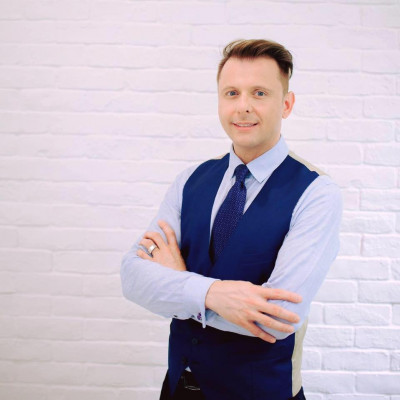
Inspired Imaginings: Exploring the Future of TEYL #1074
To mark the pearl anniversary of the IATEFL Young Learners and Teenagers Special Interest Group in 2016, Carol Read contributed a special centerpiece entitled An ABC of changes in primary English language teaching and learning over the last 30 years. This fascinating overview unpacks how historical developments have influenced and shaped current TEYL practices.
My plenary takes its inspiration from Carol’s centerpiece by focusing on five of her ‘ABCs’ and imagining ways that they might develop over the next 30 years - and beyond.
Specifically, I will shine a light on these TEYL areas:
C is for Curriculum K is for Kindergarten S is for Special Educational Needs and Disability U is for Use of Technology X is for Xpertise
My explorations are inspired by over two decades of engagement in TEYL as a classroom practitioner, materials creator, teacher educator as well as my current PhD research. I am especially looking forward to interacting with conference participants to discover how far my predictions resonate with colleagues’ ideas on the future of TEYL.
David Valente is the Coordinator of the IATEFL Young Learners and Teenagers Special Interest Group. He works as a PhD Research Fellow in English Language and Literature Subject Pedagogy at Nord University, Norway, where he teaches on the 5-year Master's degree in Primary Education. David has over 20 years' experience in ELT as a teacher, teacher educator, academic manager, author and editor. His specialist interests include children's literature in ELT, primary and secondary teacher education and intercultural learning. David is also one of the authors of the Cambridge University Press FUN Skills series.

Korean Film: Kongjui & Patchui (1978) #1178
Join Conference Chair Michael Free for another night of Korean cinema!
Tonight, following David Valente's plenary on young learners, we will view a film that is suitable for the whole family: Kongjui & Patchui. If you read this synopsis on Wikipedia, you'll immediately recognize this traditional story's similarity to a certain Western folk tale: https://en.wikipedia.org/wiki/Kongjwi_and_Patjwi

Tech Clinic with Joe Dale (Wednesday) #1136
We are delighted to announce that Joe Dale, an edtech specialist based in the UK, will be leading a number of tech clinics during KOTESOL 2021!
Joe’s sessions will be focused around any edtech questions and issues you are having, both in general and specifically during the pandemic. If you are interested in attending one of Joe’s clinics, we invite you to send in your questions and he will suggest some practical solutions that should help to improve your practice. His considerable experience in this area (see his bio below) means that he will be able to provide quality, substantive advice — and if he doesn't know the answer straight away, he'll find it! These sessions will last for 90 minutes, and will be custom-tailored to each group. They will also be small sessions, with attendance capped at 20. For sessions to run there needs to be a minimum of 10 participants. You may sign up for a maximum of 2 sessions.
Session Timetable (subject to minimum sign-up of 10 participants; subject to change)
Monday, February 22 — 5:00-6:30 p.m. KST Tuesday, February 23 — 5:00-6:30 p.m. KST Wednesday, February 24 — 5:00-6:30 p.m. KST Thursday, February 25 — 5:00-6:30 p.m. KST Friday, February 26 — 5:00-6:30 p.m. KST
Registration and question submission will be done via an electronic form that will be accessible shortly.

Tech Clinic with Joe Dale (Thursday) #1137
We are delighted to announce that Joe Dale, an edtech specialist based in the UK, will be leading a number of tech clinics during KOTESOL 2021!
Joe’s sessions will be focused around any edtech questions and issues you are having, both in general and specifically during the pandemic. If you are interested in attending one of Joe’s clinics, we invite you to send in your questions and he will suggest some practical solutions that should help to improve your practice. His considerable experience in this area (see his bio below) means that he will be able to provide quality, substantive advice — and if he doesn't know the answer straight away, he'll find it! These sessions will last for 90 minutes, and will be custom-tailored to each group. They will also be small sessions, with attendance capped at 20. For sessions to run there needs to be a minimum of 10 participants. You may sign up for a maximum of 2 sessions.
Session Timetable (subject to minimum sign-up of 10 participants; subject to change)
Monday, February 22 — 5:00-6:30 p.m. KST Tuesday, February 23 — 5:00-6:30 p.m. KST Wednesday, February 24 — 5:00-6:30 p.m. KST Thursday, February 25 — 5:00-6:30 p.m. KST Friday, February 26 — 5:00-6:30 p.m. KST
Registration and question submission will be done via an electronic form that will be accessible shortly.
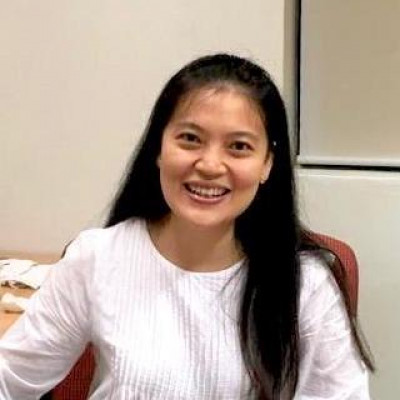
The Future of Teaching English with Technology #1073
At a webinar last year, an audience member asked a question: “Will language teachers be replaced by technology?” I confidently answered with a big "No". Yet, the question lingers. Surviving almost one year teaching language online, today I am convinced that some language teachers will not be replaced by technology — but others will.
In this talk, I will discuss how technology has been used and how it will continue shaping our job as language teachers. Reflecting on my own teaching experience and exploring the potentials of technology, I will also discuss how future language teachers can teach English with technology.
To be able to successfully teach English with technology, we will need to stop seeing technology as a powerful tool that brings about definite results without considering how it is used.
We need to go beyond finding out whether an app is effective for learning or teaching grammar, vocabulary, or pronunciation, for instance. We need to consider that technology is not merely an instrument we use to serve language teaching purposes. It has penetrated our lives so deeply in many different ways that its use has changed the way we teach and the way language learners learn.
Francisca Maria Ivone currently teaches at the Department of English, Universitas Negeri Malang in Indonesia. She has a Bachelor of Education from IKIP Malang, Indonesia, and a Master of Arts and Doctor of Philosophy in Applied Linguistics from The University of Queensland, Brisbane, Australia. She researches and publishes in the area of ELT, TELL, CALL, Extensive Listening and Viewing (EL/V), Extensive Reading (ER), learning autonomy, and collaborative learning. She is passionate about the use of technology in language teaching and learning. She also gives training to pre-service and in-service teachers on the use of technology in language teaching and learning, ER, and EL/V.
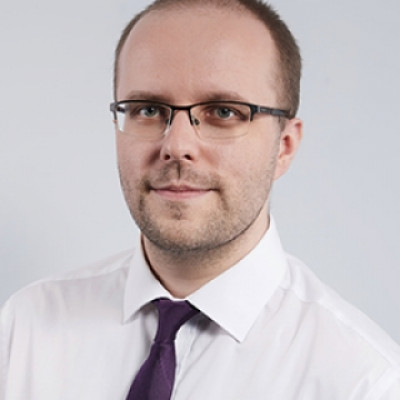



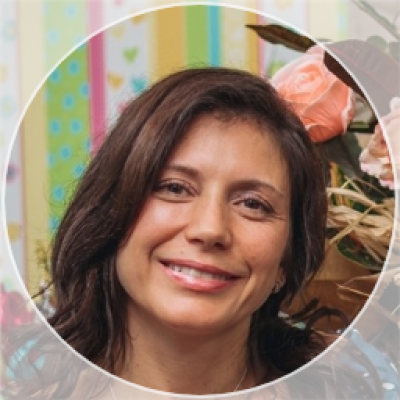

Technology and Language Assessment: Considerations and Consequences #1037
Technology is rapidly changing language assessment in a number of ways. Brought about at least partially by the pandemic, we at the British Council’s East Asia Assessment Solutions Team have been involved in numerous projects related to technology and language assessment. In this panel discussion, we will discuss the considerations and consequences of the following projects: remote proctoring development, test-taking strategies in automated assessment, the implications of automated assessment on English as a Lingua Franca, visual literacy in an automated environment, summative assessment in an online setting, the impact of affective factors on remote speaking assessment, as well as an evaluation of an automated scoring system for a high-stakes Speaking test. The implications for the classroom, whether digital or face-to-face, will also be discussed.
Panelists: Christopher Redmond, Trevor Breakspear, Sheryl Cooke, Johnathan Cruise, Jan Langeslag, Neil Ryder, William Bayliss, Radosveta Valkova and Jonathan Dixon.

Tech Clinic with Joe Dale (Friday) #1138
We are delighted to announce that Joe Dale, an edtech specialist based in the UK, will be leading a number of tech clinics during KOTESOL 2021!
Joe’s sessions will be focused around any edtech questions and issues you are having, both in general and specifically during the pandemic. If you are interested in attending one of Joe’s clinics, we invite you to send in your questions and he will suggest some practical solutions that should help to improve your practice. His considerable experience in this area (see his bio below) means that he will be able to provide quality, substantive advice — and if he doesn't know the answer straight away, he'll find it! These sessions will last for 90 minutes, and will be custom-tailored to each group. They will also be small sessions, with attendance capped at 20. For sessions to run there needs to be a minimum of 10 participants. You may sign up for a maximum of 2 sessions.
Session Timetable (subject to minimum sign-up of 10 participants; subject to change)
Monday, February 22 — 5:00-6:30 p.m. KST Tuesday, February 23 — 5:00-6:30 p.m. KST Wednesday, February 24 — 5:00-6:30 p.m. KST Thursday, February 25 — 5:00-6:30 p.m. KST Friday, February 26 — 5:00-6:30 p.m. KST
Registration and question submission will be done via an electronic form that will be accessible shortly.

The More Things Change, the More they Stay the Same. #1078
When we ponder the question of how our lives are likely to change over the coming years and decades, it is tempting to let our imaginations run wild. When we think about learning foreign languages, for example, we may dream of technology that will allow us to have new languages uploaded automatically to our brains as we sleep soundly in our temperature-controlled hover-beds. Alternatively, the more pessimistic among us might live in dread of a nightmare scenario in which AI holograms render our entire profession obsolete.
It is important to remember, however, that when it comes to education, and particularly to language education in institutional settings, there are some basic elements of what we do that are unlikely to change anytime soon, if ever. Today, we have access to technologies and resources that would have been unimaginable as recently as 20 years ago, but is the way we teach and learn now really so very different from the way we did it back then? In this session, I will look at what I consider to be the fundamentals of language education and make the case that when we envision the future, it is just as important to be aware of the things we know will not change as it is to imagine all the things that might.
David Barker is the director of the English Center at Gifu University in Japan. Originally from Wales, he became a language teacher after working for two years as a police officer in Liverpool, England. He has a PhD in language education and has taught English in Singapore, New Zealand, and Japan, where he has lived for 23 years. He is the founder of BTB Press and the author of a wide range of bilingual textbooks. He is also the author of four Japanese language books about learning English, two of which became national bestsellers. His main areas of interest are cross-linguistic interference and materials development.

Film: The Marines Who Never Returned. #1181
Second to last film! :)
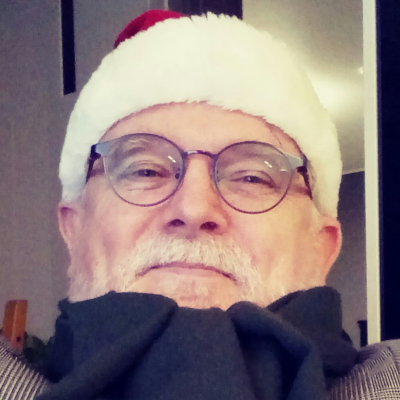

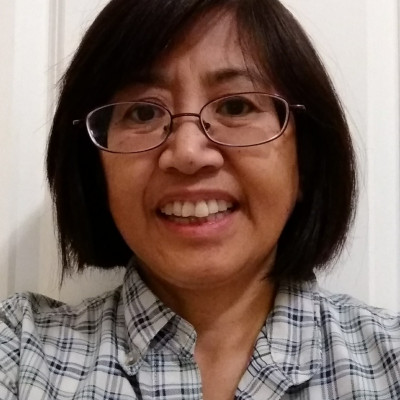
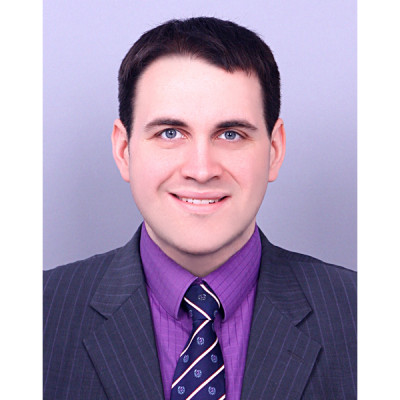
Building Financial Health While Teaching English in Korea #1039
The last year, 2020, will go down in history.
How did your bank accounts fare?
Financially, 2020 was an excellent year for the "haves" but a terrible year for the "have-nots." The purpose of this panel is to help answer questions that our colleagues have about improving their financial health, particularly in light of the impact of COVID on an expatriate lifestyle. The panelists have experience in debt reduction, investing, building “set-asides,” F.I.R.E., retirement planning, managing pensions, passive income, Korean taxes, tax in other countries we know about, planning based on your age, life after Korea, some legal issues, etc. Our goal with this panel is to provide you with a few of our top tips to improve your financial health and then answer any questions you have regarding your individual needs and situations. Working together can help everyone's financial health improve.
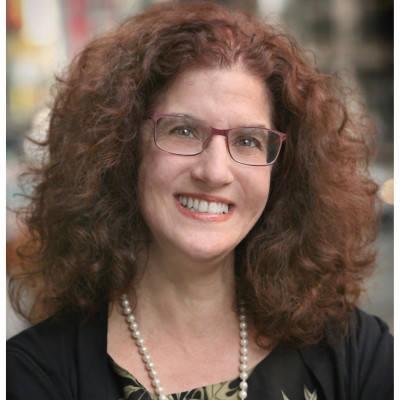
Future Proof #1075
Even before the pandemic hit, I was contemplating the evolving nature of work in our profession. What does it mean to hold a “full time job”? Is freelancing something you work up to, or work to get away from? Should experience bring a higher salary for the same work, or for more responsibilities? Is an hour of teaching worth more or less than an hour of working in an office?
And then the move to online learning and teaching so many of us experienced over the last year—and continue to experience this year—led to even more questions. Should a teacher be paid according to their own local living expenses, or according to students’ local living expenses? How do we balance our need to support ourselves with our desire to support economically challenged students? How much of what we do—not just teaching but writing articles, giving webinars, professional development, and so on—should be free and how much should be paid? What are the options for someone who loves their job but feels underpaid? How can we future-proof our careers for uncertain times?
I’m not going to pretend to have the definitive answers; I don’t think there are definitive answers. But I’d like to share with you the questions I’ve used to focus and adjust my own work life and mentor others. The conversation about how we work and how much we work and what all that is worth is one we should be having, not just with ourselves and our employers but throughout our profession.
We'll let Dorothy introduce herself!
"I'm an author, editor, teacher, and teacher trainer in the field of English Language Teaching (ELT). I taught English, French, and Japanese for over 20 years in Asia, Africa, and the US. My MA in TESL is from the School for International Training in Vermont.
I currently write and edit English language teaching materials and textbooks, and conduct teacher training workshops. My areas of specialty and interest include teaching writing, teaching reading, business English, academic English, testing, and humor. I'm a frequent plenary speaker at international conferences, and in 2012 founded my own small publishing company, Wayzgoose Press, that publishes fiction, non-fiction, and of course ELT materials for teachers and students."
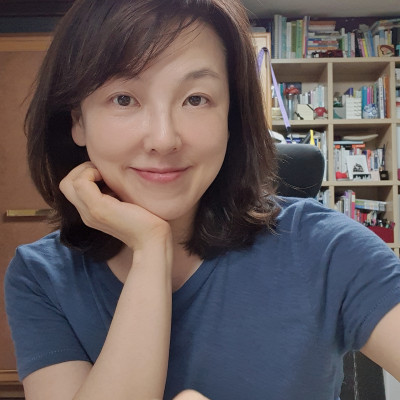
The “Mom Factor” of Korean ELT: Do we work with it, or without it? #1032
The “Mom factor” in Korea’s ELT setting, compared to the magnitude of their influence as the most critical decision maker for their children’s English learning process, has received relatively little attention in ELT. During the current pandemic, the moms of young learners have become even more influential with their strong engagement and aspiration to learn more about English education. Although this can be regarded as desirable in a general sense, it also raises concerns and issues that need discussion among ELT professionals. The phenomenon of this “Mom factor”, as well as the various advantages and challenges it brings with it, will all be discussed during my presentation.
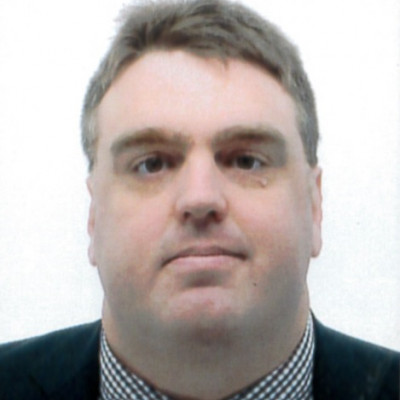

Quantitative TESOL Classroom Research in Light of the L2 Methods Reform: A Teacher-friendly Quality Checklist #1033
Korea TESOL has a long history of presenting venues for the sharing of classroom research that has worked to improve the practices of its members. Second language research in a general sense has been undergoing a methodological reform which has accelerated exponentially over the last ten years. In this presentation, attendees will learn about this methodological reform within quantitative research and how it has manifested itself in what we observe in recent classroom-based research reports. From this overview will emerge several points that readers of these research reports can use to gauge how much stock to put into classroom research reports that might inform their teaching. These points will be presented in an accessible and jargon-free checklist that readers can use to rate a report’s reporting and sample design. Regarding the former, attendees will learn how to identify whether a report’s instruments/measurements have had their validity and reliability considered without the need of technical expertise in the area. Attendees will also learn how to locate and consider how the report has presented the observed effects of the research. Regarding sampling, attendees will learn how issues such as multi-site site sampling, power and sample size planning, and assignment of conditions can be identified and the relevance of such effects. In sum, this presentation works to provide attendees with a tool with which to engage with the research they encounter to inform their practice.


Recommendations for Classroom-based TESOL Research: L2 Instructed Vocabulary Acquisition as an Exemplar #1034
Second language acquisition research (SLA) is in the midst of a methodological reform, particularly within its quantitative domain. This reform has produced a body of work, comprising systematic reviews and meta-analyses, and has resulted in recommendations relating to the practices of SLA researchers. In the spirit of the methodological reform, during this presentation we will discuss research pertaining to an important subfield of SLA, second language instructed vocabulary acquisition (L2 IVA) research, which concerns how target lexical items are learned, specifically in the classroom context, and also the factors influencing the process. The practices of L2 IVA researchers were assessed via the analysis of almost 100 studies published in six journals since the beginning of the 21st century. The results indicated that L2 IVA research will benefit from a more robust approach to sample size planning, and a set of recommendations for future research will be laid out.

KOTESOL 2021 Lesson JAM! Live Discussion #1182
Come look, share, and talk about all the lessons on our KOTESOL 2021 Lesson Jam! Padlet. BYOD (Bring your own drinks) In honour of Dorothy Zemach's mother, there will be a special on Gin and Tonics. :)

Korean Film: A Story of Hong Gil Dong (1978) #1179
The final film we we screen this year is based on another Korean folk tale, Hong Gil Dong. This story tells of the rise of the lowborn Gil Dong, who intelligence, skills, and temperament liken him to another folk hero, Robin Hood. It has been touted as "arguably the single most important work of classic Korean fiction. It has been seen in print, movies, TV shows, novels, and comic books. This cartoon version is excitement for the whole family!
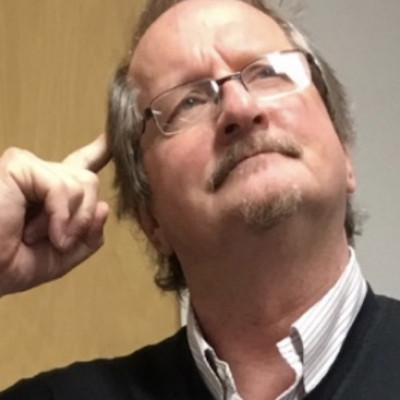
A Look at the Social Brain Will Change Your Ideas about ELT Forever #1072
Through fMRI research, Matthew Lieberman discovered a large network in our brain devoted to figuring out other people's thoughts and intentions: the mentalizing network. The social brain is also important for learning and is active anytime the working memory network, which we use for analytical thinking, is not. Lieberman calls it our Superpower, but he also defines our Kryptonite: traditional education. Educators tend to see the social aspect of learning as a frivolity, or ignore it altogether. For designing rich online classes, synchronous or not, the social brain has much to teach us, from why we experience "Zoom fatigue," why we might advise aspirin for that student that just broke up, to ways to use Dancing Matt to get learners into the right "brain state" for language learning.
Curtis Kelly (EdD.) is a professor at Kansai University, a founder of the JALT BRAIN SIG, and a columnist for the KoTESOL Teaching English Connection. He's a brain nerd. In pursuit of his life mission, "to relieve the suffering of the classroom," he has written numerous textbooks, 30 books, including the Cambridge Writing from Within series.
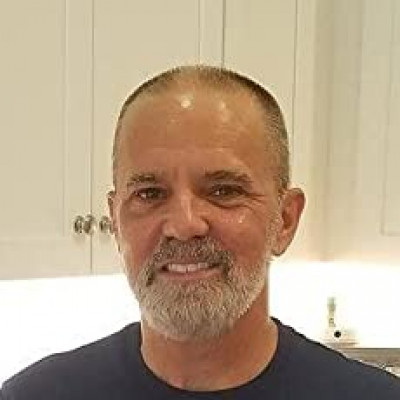
Teaching Language Classes Online: A Learner’s Perspective #1076
Many teachers used to doubt that a language class could be taught effectively online. However, a worldwide pandemic has forced language instruction to go online in many parts of the world and we have all seen how some areas of language teaching have changed now. Because of COVID-19, both experienced online teachers and novice online teachers have now had almost a year of real experience teaching English and other languages online. When this is over or when a majority of learners and teachers can go back to a somewhat normal teaching situation again, how might instruction be different?
I am a very experienced language teacher (40 years) and language learner (7 languages). In the past six months, I have also gained another type of experience: I have been an online language learner in an asynchronous university German course.
In this talk, I will offer some interesting and sometimes unexpected insights I gained about online language instruction based on my perspective as a real learner in a real language course that was completely online.
Dr. Keith Folse, Professor of TESOL (Teaching English to Speakers of Other Languages), University of Central Florida, teaches undergraduate, graduate, and doctoral classes. Originally secondary certified in English and French, he has taught English as a Second Language for 40 years in Saudi Arabia, Malaysia, Kuwait, Japan, Spain, and the United States. For the last eleven years, he has also taught online courses, both synchronously and asynchronously.
Dr. Folse is the author of 70 English and teacher education textbooks and is a frequent conference presenter all around the world. His presentations often deal with best teaching practices, vocabulary, grammar, and speaking. He has won numerous teaching and research awards from his university, TESOL International Association, and National Geographic Learning.


Closing Ceremony and Conference Retrospective #1183
Join us one last time, where we say 'thank you' to the people who made this conference possible, recognize some people whose work for KOTESOL has been exceptional over the past year, and say goodbye until next year!
Before we go, though, we'll have a chance to ask ourselves: "Where do we go from here?"
To answer that question, we're going to:
*Bring back Gerd Leonhard - live and in person! Have a question for Gerd? Let us know what it is! He'll only be with us for 15 minutes, though, so you'd better be quick!
*Look back on some highlights from the conference.
*Discuss what your takeaways are: What inspired you? Motivated you? Challenged you?